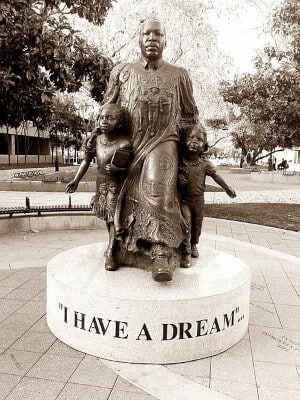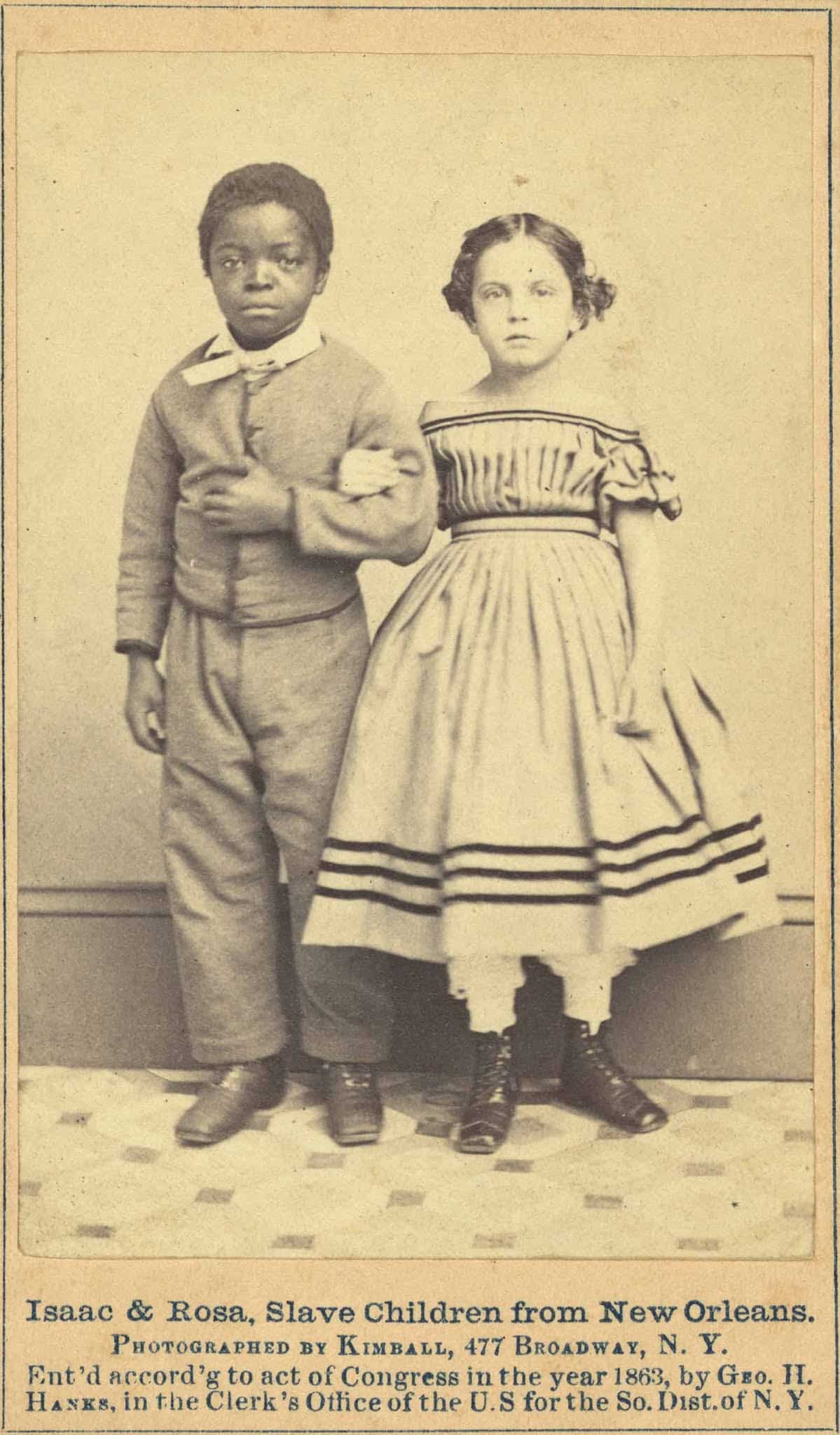Table of Contents
ToggleJuneteenth is the newest Federal Holiday that joined the list in 2021. It was introduced as a Federal Holiday by Joe Biden and is on the same level of importance as Independence Day.
Juneteenth has been a widespread African-American holiday since emancipation and, more recently, a state holiday across much of the country.
What is Juneteenth?
Juneteenth is the day when African Americans celebrate their emancipation from slavery in 1865.
Read on to find out how the holiday came about and how it is now celebrated.
The History of Juneteenth
At its heart, Juneteenth is the day when African Americans celebrate their own Independence Day. It stems from Texas finally achieving emancipation in 1865, when the last slaves of the Confederacy were freed.
Since then, Texas has celebrated it each year, and the holiday has grown in stature nationwide. In 2021, it became a national federal holiday.

The idea that Juneteenth is an Independence Day celebration is just part of the story here. There is much more to this day as people celebrate in various ways and make this an even more symbolic day for African-Americans. The emancipation process wasn’t that straightforward, and slavery and equal rights issues even continued after.
There is the question of why the emancipation in the Confederate state of Texas took so long after Lincoln’s Emancipation Proclamation. Then there are the deeper issues of civil rights, slavery, and the 13th Amendment around that time.
Turning Juneteenth Into a Federal Holiday
There are lots of names for Juneteenth. Some may refer to it as Emancipation Day or Black Independence Day, depending on their celebrations and where they are. The official name is Juneteenth National Independence Day, but Juneteenth is the more common term as a portmanteau when referring to the date.
Juneteenth has only recently become a national holiday. However, it was recognized on June 17th, 2021, by President Biden signing the Juneteenth National Independence Day Act. This allowed for the first official national celebration two days later.
Before June of 2021, the date was already a holiday, but not a federal one. So, government employees couldn’t get the day off. This has changed for Juneteenth 2021, Juneteenth 2022, Juneteenth 2023, and onwards.
When Was The First Juneteenth?
The origins of the holiday go back a lot further than you might expect. The first was held in Galveston, Texas, in 1866, and Texas was the center of celebrations for a long time to come. So, why June 19th, and why Texas?
Why Choose June 19th as the Date of Juneteenth?
June 19th initially sounds like an odd choice for a national holiday to celebrate emancipation. However, Lincoln‘s famous Emancipation Proclamation came on January 1st, 1863. This called for the end of slavery and the start of a better future for African Americans. So, you may wonder why we don’t have a national holiday for Emancipation Day at the beginning of the year.

There are two reasons. First of all, this is already New Year’s Day and a federal holiday for those celebrating the start of a new year. Although emancipation was proclaimed, it wasn’t fully realized until June 19th, 1865. For one reason or another, it took states a while to fall in line, and freeing slaves was more complex.
Why is Texas important in the history of Juneteenth?
The location of this original holiday is significant because while the Emancipation Proclamation called for the freedom of all enslaved people across the United States, it took time for all states to comply fully and for every black American to be free. For example, it wasn’t until June 19th, 1865, that Texas finally acquiesced.
Union Army General Gordon Granger issued a general order on this day, which is why this date was used in later celebrations. As the last state in the Confederacy to give up slavery, this moment was monumental on a broader scale, which is why we now celebrate Juneteenth as Emancipation Day rather than the date of the proclamation.
Why was Texas so late to grant Emancipation?
A big question here is why it took so long for the people of Texas to learn of their freedom. It was two and a half years between Lincoln’s official proclamation and the announcement to the people of Texas by the general on June 19th. This is incredibly slow.

It wasn’t uncommon for news to travel slowly in the 1800s simply because of the lack of technology and the time for written words to physically reach people in other states. It is easy to take for granted that we can know everything instantly and beam information around the world in seconds. Today, a presidential address could be live-streamed or tweeted out to anyone around the globe with a good wifi signal.
Those in remote areas had to wait for official news by letter or newspapers back then. The postal system could only do so much. Still, two and a half years is a long time to be in the dark about the proclamation, especially when all states were in the process of ratifying the 13th Amendment to abolish slavery.
Was Texas merely cut off or feigning ignorance about the Proclamation?
Texas, at the time, was very difficult to reach due to poor transportation infrastructure. It took a long time to get from the south to the north-eastern center of the country. The postal service ended in 1861 when the state announced its secession from the Union. This made matters worse.
The addition of Union blockades for the Confederacy’s mail systems meant that Texas was virtually cut off. So, the region remained in the dark about what was happening elsewhere.
As other states freed their slaves, Texas kept the tradition going. This added benefit for the slave-owners led to speculation that word had reached the state much sooner. The plantation owners found a way to stop any public proclamations in the state.
Those in higher positions of power may have found a way to silence the truth as long as possible for their own gain. Then, they would reap the financial rewards of another harvest or simply show defiance to the Union.
Of course, the truth couldn’t be withheld forever. So on June 19th, General Gordon Granger arrived in Galveston with around 200 Union troops to deliver the message and ensure that emancipation would be upheld.
Was Texas the last state to end slavery?

This is where there is another curiosity to the story of the end of slavery in America. Black Independence Day commemorates the moment when the Emancipation process was fully realized across the Confederacy. The Confederate South is seen as the tyrannical and pro-slavery area of the nation when looking back at the era and the Civil War. However, there is also no doubt that this was a significant moment when Texas meant that the whole Confederacy was now free.
However, this overlooks that slavery was in place in the Union. There were slave-owners here, and laws in place that had to change. Delaware and Kentucky still maintained that slavery was legal after the fall of the Confederacy. Also, the proclamation invited Confederate states to rejoin the Union or face the loss of slavery.
Should Black Independence Day Fall on December 6th Instead?
The official end of slavery in the United States across all states – Union or Confederate – came about on December 6th, 1865. This was when the 27th of the required 36 states ratified the 13th Amendment. This amendment ensured that the Constitution now made clear that slavery and involuntary servitude would be abolished, except as a punishment for a crime. This meant that Delaware and Kentucky had to end any such laws still in place.

The process of the 13th Amendment took place as the Confederacy gradually saw slavery come to an end across the states. It had been passed by both houses of Congress before the emancipation in Texas, on January 31st of that year. The original proposition in the Senate came much earlier, on April 8th, 1864. But the ratification process meant that it took a little longer for the amendment to pass.
Many states did so in February, very soon after the bill passed Congress. Impressively, Illinois did so the very next day. But others rejected the amendment at first. It didn’t matter for the bill’s progress as the majority was already in place. However, Kentucky, Delaware, New Jersey, and Mississippi all opposed it at first. Kentucky wouldn’t ratify until 1976, and Mississippi wouldn’t ratify until 1995.
Continuation of Slavery in the United States
The story of black oppression in the United States doesn’t end with the moment that slavery was abolished. There were many loopholes in the law that meant that while no man could be held in involuntary servitude, they could be kept as poorly-paid workers in similar conditions and roles. There were freemen working on plantations with little change in circumstances after the passing of the 13th Amendment.
Meanwhile, divisions between white and black Americans continued with widespread discrimination, segregation, and Jim Crow laws. There was also the fact that no free Black man in the Union had any right to citizenship at this point. There was freedom to a point, and more work was needed to obtain equality and civil rights.
The Civil Rights Movement wouldn’t come until one hundred years after the emancipation of the slaves. Texan citizens held their 100th Juneteenth celebration just one year after the Voting Rights Act was passed and segregation ended.
The Growth of Juneteenth Celebration in America
The first Juneteenth celebrations took place in Texas, the year after freedom was finally granted to the slaves. While Texas has seen Juneteenth celebrations since the days of emancipation, it was only awarded the status of a state holiday in 1980.

Get Smarter on US News, History, and the Constitution
Join the thousands of fellow patriots who rely on our 5-minute newsletter to stay informed on the key events and trends that shaped our nation's past and continue to shape its present.

Over time, these celebrations grew, with more and more black communities taking the time to honor the days in various ways. The spread of the holiday is linked with the migration of free black Americans, who took the customs into new communities and spread the word about the celebrations.
For a long time, the “unofficial holiday” meant that many African-Americans would celebrate in their own time and take time off work as time owed, rather than having the day automatically assigned as a holiday. Many have felt that it was unfair as there are national celebrations for Independence Day, but there was nothing for Black Independence Day.
Why should Juneteenth be any less of an event, given its similar historical significance for those involved?
Still, in 2020, some states didn’t recognize it as a state holiday. For example, New York only did so that year.
How to celebrate Juneteenth
As with many grand-scale American celebrations, a lot of the emphasis of this big day lies on food and drink. However, families are sure to have their traditions when it comes to the meals made and the size of the gathering. Some will go for old family recipes, and others a good old-fashioned Texas cook-out.
There is also a trend for drinking red drinks that serve to honor those who suffered during slavery and gave their blood so that future generations could be free.
Many events will also have a religious aspect to the day, with services in churches and prayers. Still, it is a widely secular occasion for different faiths where anyone can celebrate the anniversary of emancipation. This means many community events such as food and music festivals, carnivals, etc.
A Federal Holiday for Everyone
The great thing about this day and the wider nationwide celebrations is that anyone can join in any way they want. Those within black communities may take the time to put on a more lavish celebration in a local neighborhood or to set up a parade in a town.
In contrast, others may keep things more low-key with a family dinner and acts of remembrance for the ancestors that came before them and perhaps worked on the land in the state.
How to celebrate Juneteenth if you are white
This is something that those new to the concept of Juneteenth may struggle with. What can white people, or those of other races, do to share in the festivities respectfully?
The last thing anyone wants to do is intrude on something symbolic for the black community or do anything akin to cultural appropriation. Yet, there is something poignant in people coming together to celebrate this day like they would the Fourth of July.

If there are community events with open invitations or public events such as parades and festivals, go along and see what’s happening. For example, Juneteenth is an excellent opportunity to show support for African Americans and their struggles for equality and recognition.
The decision to make Juneteenth a national holiday follows the impact of the Black Lives Matter protests and ongoing movements for greater equality. So, this day can be as much about championing those causes as celebrating emancipation.
Using Juneteenth to Educate
Juneteenth is also a good opportunity for people to educate themselves on the history of Juneteenth, slavery, and other civil rights matters. There is a good chance that with this being such a new occasion in some areas, some demographics and younger residents may not realize what Juneteenth is all about. They may perhaps know it as Black Independence Day, but aren’t so well educated on the details of the emancipation process and the 13th Amendment. This holiday is a chance to gain knowledge and celebrate black culture.
Also, there is a trend to use the day to support people of African-American descent rather than white-owned businesses or major chains. Or, it might be a good opportunity to discover some black creatives making music, art, film, and more.
The Juneteenth Flag
Another tradition of the day is the raising of the Juneteenth flag. You may see this at people’s houses and possibly from government buildings now that this is a national holiday. The flag was devised in 1997 to mark Juneteenth. Recent revisions of the flag design include text for the original Juneteenth date of 1865.
It has the traditional colors of red, white, and blue, as seen on the national flag, and has links to Texas’s flag.
There is a white star on a navy blue background, with red underneath. Instead of two solid rectangles as on most flags, a curved line represents a new horizon. There is also a starburst effect around it.
Other Juneteenth Flags
This is not the only flag that you will see on Juneteenth. Others will raise the standard American flag, and there is also the chance of seeing the Pan-African flag. This is a tricolor flag with horizontal red, black, and green bands. This is a significant symbol for African-American communities and is also known as the Black Liberation Flag.
There are also examples of flags where people have taken the design of the national flag and used these Pan-African colors instead.
Juneteenth 2022
Juneteenth 2022 is sure to have some extra significance following the pandemic. While it was a federal holiday last year, the impact of the coronavirus pandemic and the restrictions on social events and gatherings are sure to have had an effect.
Many families would have held get-togethers over Zoom rather than travel to be together, and the parades and other community events wouldn’t have been the same.
This year, the country is getting back to normal. So naturally, this means bigger social occasions, so this is sure to be a grander Juneteenth celebration.

The Significance of Juneteenth
Juneteenth is more than just a date to mark the end of slavery for African-Americans in the United States. This date is significant in the shift away from slave-ownership in the Confederacy, but the history of slavery and civil rights is complicated. So instead, Juneteenth is more about the need to build a nationally recognized day of celebration of African-American communities and their independence.
The Juneteenth date makes as much sense as many others in the period of emancipation and the 13th Amendment. But, it stuck because this is the day that the community of Galveston chose as their celebration. Keeping the Juneteenth date honors them and their ancestors.
Now that Juneteenth is a federal holiday, the impact and cultural significance can only grow as it becomes a platform for larger events and black voices to reach a larger audience.










